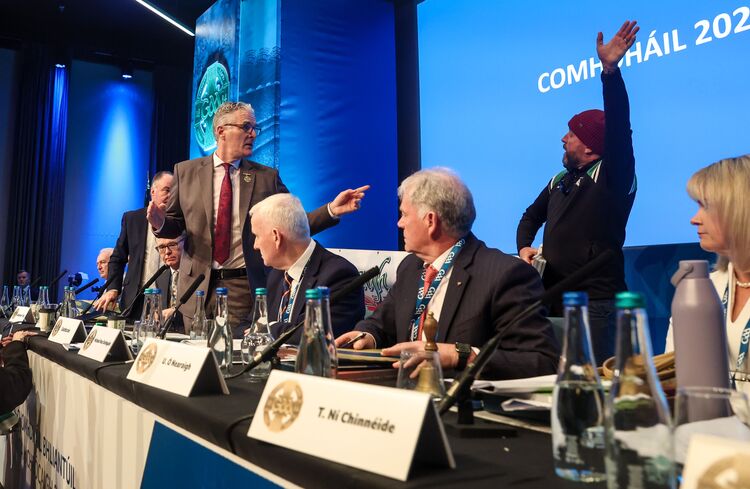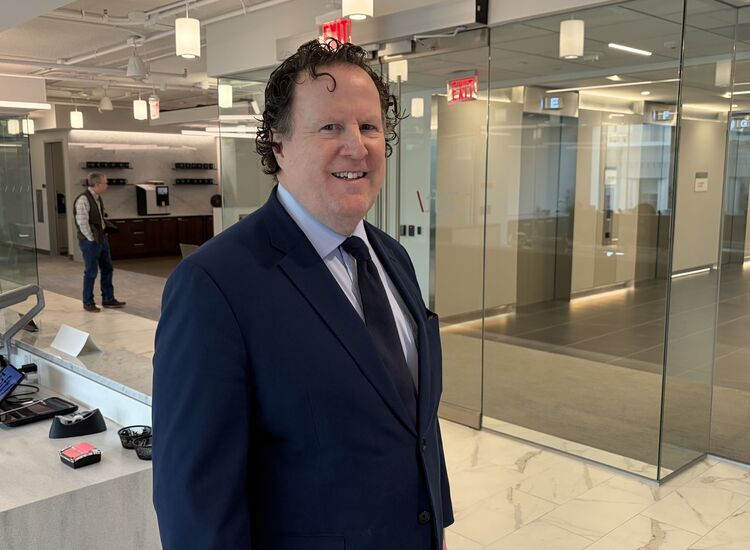During her 25 years at Rikers Island, Sr. Margaret McCabe has met many troubled young men, but one, a boy called Augustine, stands out.
His mother was mentally ill, and, as a means of escape, he had turned to stealing cars and smoking pot. McCabe talked to him about how he might change his future, and then arranged their next meeting, before asking him if there was any other way she could help. "He looked at me and he said, 'A hug would do.' I almost started to cry myself," she recalled.
McCabe is one of the nuns whose contribution to the city was celebrated earlier this month at a roundtable in Astoria organized by the Irish activist Brendan Fay and the Greater Astoria Historical Society. A mix of lay specialists and sisters made up the panel: Dr. Margaret Thompson, an associate professor of history and political science at Syracuse University, Dr. Marian Ronan, a research professor of Catholic studies at New York Theological Seminary, Brendan Fay, co-founder of the St. Pat's For All parade in Queens, as well as two nuns, Sr. Faustina Quayson, a chaplain in Long Island Jewish Hospital, and McCabe, a chaplain at the Robert N. Davoren Center in Rikers.
McCabe, whose father came to the U.S. from Cavan when he was 21 and whose maternal grandparents were also Irish-born, is a no-nonsense 70-year-old. She is recognizable as a nun primarily by the tiny cross that hangs from her lapel. At Rikers she counsels boys from 16 upwards and men, and runs an alcoholics anonymous group. It's hard to think of a more challenging environment - a recent article in New York magazine dwelt at length on the fierce violence and gang culture that pervades the jail - but she says she has never had a bad experience. Most of her time is spent advocating for inmates, getting in touch with their families, talking to staff, and helping them when a friend or family member dies. "I'm visible and available," she told the Irish Echo. "I try to do the best I can to show these people that they're cared for."
The purpose of the roundtable event was to reveal just how closely nuns have been involved in their communities. Many Irish women came to the U.S. as members of religious orders, and over the years, sisters have not only staffed hospitals and schools (and jails), they have also lent their support to causes at heated times in American history - in 1965, for example, a group marched with Martin Luther King Jr. in Selma, Ala., a bloody series of demonstrations that saw local police use cattle prods and tear gas against civilians. "Most of their stories are unknown even to their own communities," Thompson said.
Thompson suggested that one reason why people are not interested in nuns is their gender. "We're talking about women," she said, "what women do." Within the Catholic Church, an imbalance of power has long affected the religious sisters. Nuns have outnumbered priests since the early 19th century, working on missions all over the world, yet, according to Thompson, priests have received much of the credit. By placing an emphasis on the sacraments, the Church also granted a higher status to priests.
This year American nuns find themselves at the center of a conflict within the Church, as the Vatican carries out two investigations into their practices. The rationale behind the investigations is unclear. One is an Apostolic Visitation, which aims "to safeguard and promote consecrated life in the United States," according to a statement on its website; the results will be kept secret. In a second investigation, the more liberal of the two canonically approved nuns' organizations in the US, called the Leadership Conference of Women Religious (LCWR), will be subject to a "doctrinal assessment" by the Vatican in relation to its teachings on the ordination of women, the doctrine of "Dominus Jesus," and what the Church describes as "the problem of homosexuality." "What could happen," said Thompson, "is that it is entirely possible and not unlikely that LCWR would lose its canonical status, which would mean that the only umbrella group for American Catholic sisters would be the more conservative one."
Professor Ronan questioned what the future held for sisters. "Nuns are not representatives of women's independence in the way they were once," she explained. "In the world I came out of, you became a sister, you got married or you were a secretary. Those are not the choices any more. And if the Vatican and the bishops keep beating up on Catholic sisters, they are dooming the future."
Nuns still to come to the U.S. from other countries. Sr. Quayson represents an African congregation. "We are your fruits," she told the audience. "You brought education to our country." And despite dwindling numbers and a diminished presence in health and education, sisters in the U.S. continue to carry out important tasks. McCabe pointed out that her colleagues work with immigrants and with trafficked women. "It's not that there's not enough to do - there's too much to do," she said.
Either way it looks like American sisters are at a crossroads. For Sr. McCabe, though, the present is what counts, and she hopes to stay where she is at Rikers for few more years, unlike her charges. "If I thought they'd all become good Catholics and never come back again, I would have quit a long time ago," she said. "But while they're with me, they know I care about them; and if Sr. Margaret cares about them, they know that God cares about them."










